Movistar building for the future after winless Vuelta a Espana
No stage wins for Spanish team despite best efforts
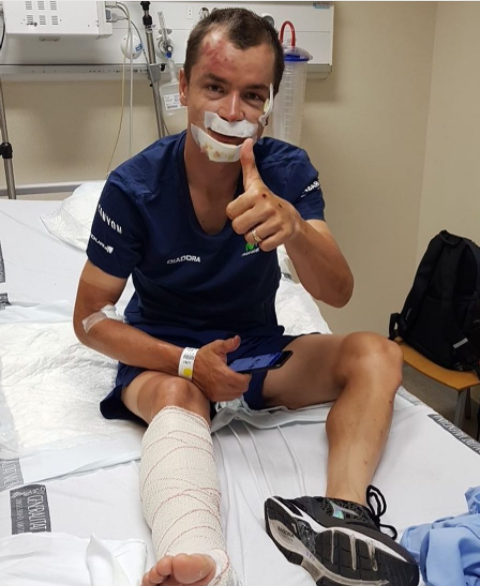
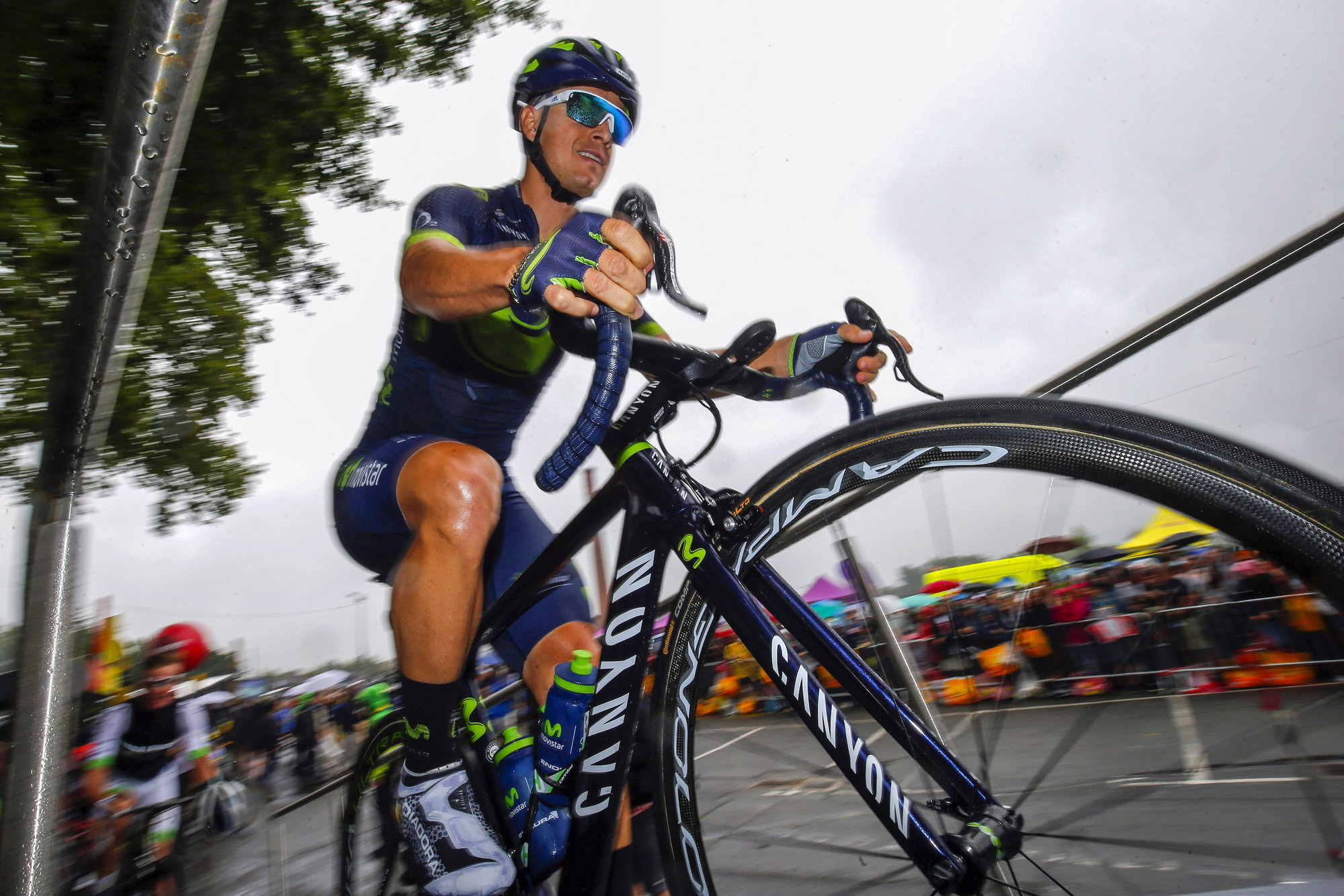
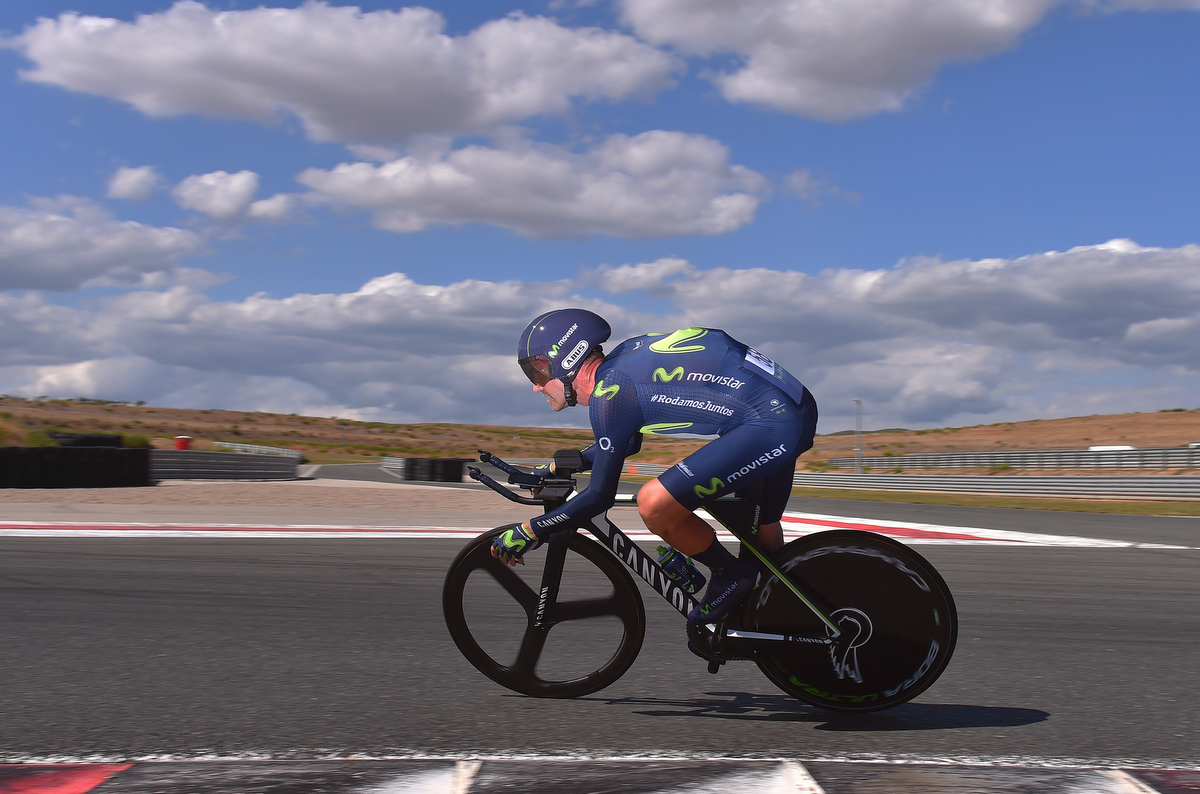
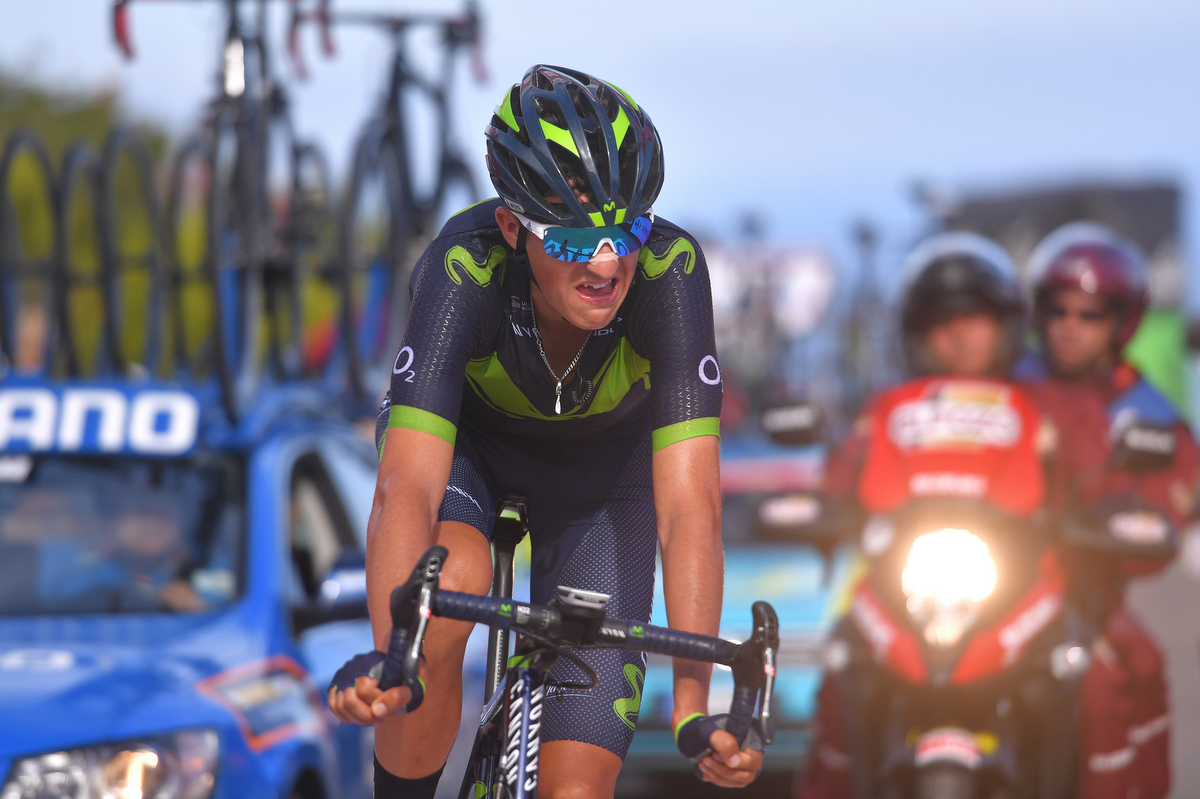
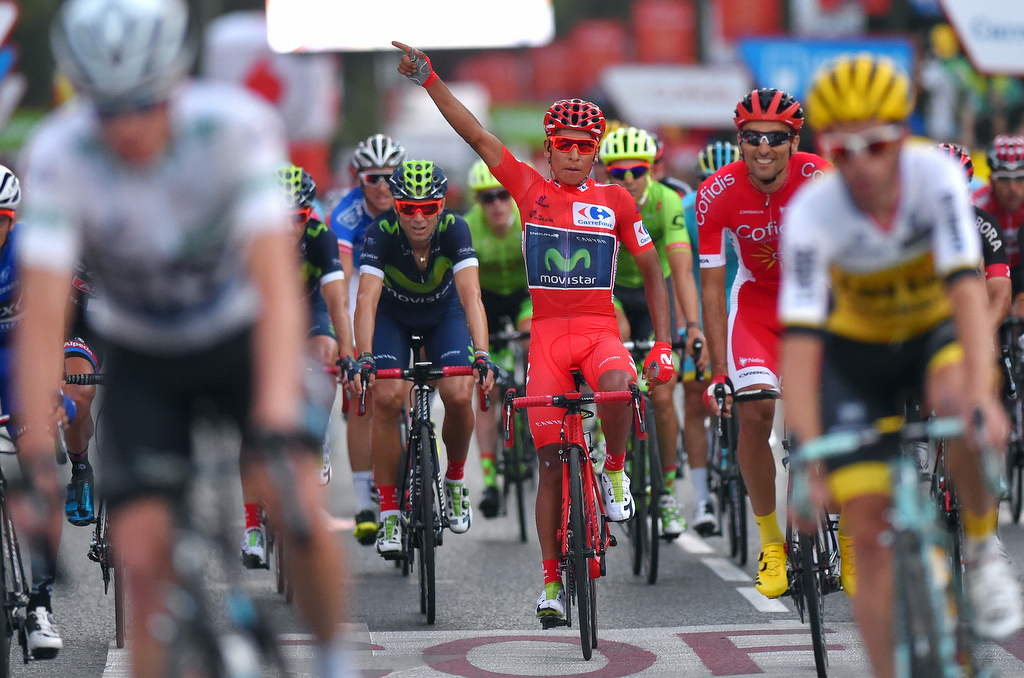
A year after Movistar rolled into Madrid as the overall winners of their country's biggest bike race with Nairo Quintana, it's been a very different kind of Vuelta a España in 2017 for Spain's top team.
Movistar's original leader for the Vuelta a España, 2009 winner Alejandro Valverde, was badly injured in a high speed crash in the Tour and could not take part. Quintana, after doing the Tour and Giro d'Italia was not a option either.
As a result, twelve months after one of their best Vueltas in years, Movistar radically altered their objectives in 2017 to a focus of testing out their younger riders, getting into breakaways and playing a role of outsider rather than game-maker. That initial plan gained momentum after one of their two most experienced GC riders, Carlos Betancur crashed out in the first week injured and the other, Dani Moreno, whilst in good shape, lost time in another early pile-up. Jose Joaquin Rojas, meanwhile, has been in numerous breakaways - six - but his best result was second behind Matteo Trentin (QuickStep Floors) on home soil in Alhama de Murcia - Movistar's best result in the entire Vuelta.
"This hasn't been a difficult Vuelta, it's been a different one," Pablo Lastras, sports director at Movistar, told Cyclingnews.
"We came here with the objective that the riders could learn, and the pity is that they've been in all the good breaks, but we haven't ended up scoring a goal."
"The lack of a stage win has maybe blurred the clarity of our objectives, which were building up younger riders as good as Richard Carapaz" - 11th on the Angliru - "or Antontio Pedrero. Rojas has consolidated his role in the team, and there have been days when Dani Moreno did well, too.
"Carlos Betancur is really back at the level he had earlier in his career, too. So the way of describing this Vuelta is not disappointment, but the crashes, with Ruben [Fernandez, dnf stage 15-Ed.] and Jorge [Arcas, dnf stage 12 - Ed.] have weakened us and they're maybe the riders we've missed the most."
The latest race content, interviews, features, reviews and expert buying guides, direct to your inbox!
Lastras was not certain beforehand if Movistar would play a leading role the Angliru stage, but Marc Soler certainly gave it everything, getting in the break, leading over the Cordal, and then returning to the front of the race despite crashing on a right-hander on the descent. Soler was the last rider with Contador, too, before the Spanish champion broke away for his last victory.
For Lastras the team's focus has been one of putting the riders in breaks and building for the future. "But this has been what we wanted since Nimes. Here we're looking at what Movistar will be like in 2019 or 2020," Lastras said.
He also points out that aside from crashes, one good point in this year's Vuelta is that the team has stayed healthy in a race where some have had bad bouts of illness. Under those circumstances, when the race is not necessarily about survival and simply getting through to the end, it's easier to work with the young riders and give them opportunities to shine.
Lastras points out, too, that it's not the first time that Movistar has raced in such different circumstances, without a clear leader - the Vuelta 2002, where they took four stages, or the Giro 2003 are cases in point. But even if the squad goes home winless from the 2017 Vuelta, whilst obviously disappointing, Movistar is an experienced enough team to know exactly how to play a long game.
Nor does Lastras rule out Movistar doing a major race with no leader in the future, but as a deliberate policy rather than a default one like in 2017 in the Vuelta, simply to let their younger riders and team workers go for stage wins.
"Look at Quick Step, they've taken five stages in this race so far," he points out - and a sixth may come on Sunday. "It's could be an interesting example to follow."
Alasdair Fotheringham has been reporting on cycling since 1991. He has covered every Tour de France since 1992 bar one, as well as numerous other bike races of all shapes and sizes, ranging from the Olympic Games in 2008 to the now sadly defunct Subida a Urkiola hill climb in Spain. As well as working for Cyclingnews, he has also written for The Independent, The Guardian, ProCycling, The Express and Reuters.

